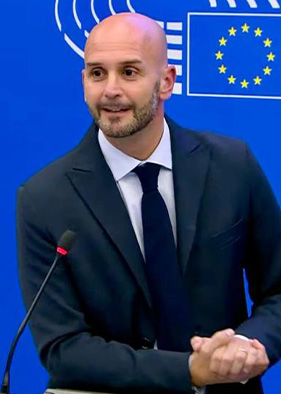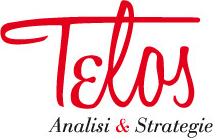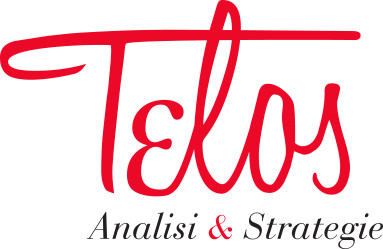June 2025, Year XVII, no. 6
Nicola Procaccini
From Terracina to Brussels
“This is exactly what I brought to Europe: a sense of limits and realism, an awareness that each provision drawn up by the European institutions has a direct impact on the lives of citizens, families and businesses.”
Telos: “Some of the political balances have changed in the European Parliament.” This was your statement after the vote for a new European College of Commissioners. What has this change consisted in now and in the recent past?
Nicola Procaccini: There has clearly been a significant shift in the political balances of the European Parliament, a Parliament that today, more than in the previous legislature, is characterised by variable majorities and an orientation to the right. The absence of a stable majority highlights how alliances form based on the specific content of each measure. There is no true majority constraint, and there actually has not been in the past five years either because majorities form based on content and can vary for each vote. There has no doubt been a significant strengthening of the role and weight of the ECR, with Brothers of Italy which has gone from having five to twenty-four MEPs, making it one of the largest delegations. This increase has given the ECR greater political sway and has boosted the growth of European Conservatives. All of this has allowed the ECR to move into prominent positions, such as the vice presidencies of the European Commission and Parliament, as well as the chairmanship of some Parliamentary Committees. There has evidently been a marked pivot to the right within the European Parliament and a rejection of policies considered overly ideological, like those associated with the Green Deal. This orientation is the expression of the vote of European citizens, which points in two specific directions. One is toward the refusal to continue to plunder the competences of the national States; another goes against the fiercely ideological approach connected to EU policies. This new situation has also impacted the composition of the EU Commission, formed by respecting the Member States’ prerogative to nominate their own commissioner. Another equally significant element, the shift of consensus toward the centre-right, a government force in many States, is creating a similar shift to the right within the European Council, formed of the governments of the twenty-seven EU states.
The European Council, the European Commission and the European Parliament play key roles in the EU decision-making process, but they often have very different points of view. Between political power and representation, who counts more?
The current EU structure shows a clear need for a rebalancing of powers between the institutions, putting democratic representation and Member States’ sovereignty back in the centre. The European Parliament should count more, whereas today the real decision-making power lies in the hands of the European Commission and Council, even though the Parliament is the only body directly elected by citizens. Often the positions of these three bodies are not perfectly aligned. This has a technical-political explanation, a result of the mechanism whereby these institutions are formed. Whereas the Parliament is an expression of the vote of citizens, who are called to the polls every five years, the Council is made up of the Heads of government of the twenty-seven EU States, which change based on the individual elections that take place periodically in the various nations. Likewise, the Commission has twenty-seven commissioners appointed by the individual States’ governments. It is a delicate balance that, as is easy to see, often leads to unaligned positions. This is why the European Commission gets accused of wielding too much power without a true mandate from the people and of functioning as an unelected government that often promotes ideological policies. In trying to create balances and get everything to fit together, often what counts most is who has the executive and the legislative power at the same time, so the Commission, at the expense of popular representation which is an expression of citizens’ vote, i.e. the Parliament, but also the European Council. In our conservative view, the Council should have more weight and importance because it is also a direct expression of the will of the people. We conservatives defend a confederal vision of the EU, which means giving greater weight and importance to the nations. A vision faithful to the original idea of Europe as a group of nations that do a few, important things together and allowing the individual Member States to do the rest. However, the risk is that the current mechanism could degenerate, concentrating too much, real, power in the hands of elite technocrats led by the European Commission.
Do the recent political choices of the EU move in the direction of restoring global competitiveness? For example, in many areas we have seen, regarding the Pharma Package proposed by the Commission, a weakening of the ability to attract investments in this strategic sector. As a member of the ENVI Committee in the previous legislature, what do you think of the compromise reached in Parliament?
The issue of the competitiveness of the EU production system is strategic to the future of the EU itself, which is having to face significant challenges to maintain and improve its international competitiveness. These challenges include the need for technological innovation, infrastructure modernisation, a reduction in bureaucracy and the strengthening of industrial production. To restore competitiveness, the EU needs to not only invest in research and innovation, it must bolster the Single Market by removing internal barriers and facilitating the free circulation of goods, services, capital and people. It should also support strategic production chains by investing in key sectors like energy, digitisation and the production of strategic goods to reduce its dependence on imports. Naturally, political regulations need to be reformed to streamline bureaucracy and foster digitisation for companies and public administrations. As for the policies relating to the Pharma Package, I don’t think they are enough to restore global competitiveness. We need more balanced policies that support innovation and investments in the pharmaceutical sector while ensuring equal access to medicines for all European citizens. Although the reform was aimed at improving access to medicines and simplifying procedures, the changes made do not adequately address the worries expressed by businesses in this sector. Pharmaceutical companies have criticised the new bureaucratic conditions and the reduced patent protections, believing that they harm European competitiveness compared to countries like the US and China, which offer better incentives for research and innovation. I therefore call for a review of European policies to promote greater competitiveness and attract investment in the pharmaceutical industry.
First you were a Terracina city councillor, then you were mayor for eight years. In 2019 you made the leap to Brussels where you are a second-term MEP and co-president of the ECR group. Today what is your relationship to your local area and what did you bring to Europe from your long experience as a local administrator?
My link to my local area has never been broken. Actually, it has become even more important to my work in the European Parliament. You can’t be a good European policymaker if you don’t start by listening to citizens, to the real needs of local communities. As mayor, I learned that ideologies are not very useful if they are not transformed into concrete solutions: you have to offer real, daily, responses to people’s needs. I carry that concreteness with me every day in Brussels and in Strasburg. To Europe I have brought the vision of who knows that the institutions cannot cut themselves off from reality. Here, they often talk about regulations and directives without really knowing what they mean on the field. I know what it means to have to deal with problems like bureaucracy that strangles businesses, lack of infrastructure or environmental management in complex territories.
This is why I try to offer a voice that defends the real interests of citizens, businesses and local administrations, what local areas really need. It is a vision that I share with many of my colleagues at the ECR group: a Europe that respects identity and local specificities and that does not demand the imposition of models that are supposed to work everywhere.
In a nutshell, I have a sense of duty towards a real community, that placed its trust in me first as mayor and today as an MEP. And with each decision I make here in Brussels, I always try to ask myself: do the citizens need this? My relationship with my homeland, with Terracina and more generally with my province and region, is the compass I use every day. This is exactly what I brought to Europe: a sense of limits and realism, an awareness that each provision drawn up by the European institutions has a direct impact on the lives of citizens, families and businesses.
Marco Sonsini
Editorial
Europe does too much! Europe does too little! Exclamations like this reflect an array of critical standpoints on the EU. Maybe it means that there is too much European integration in some areas and too little in others. Some think the EU imposes too many laws and regulations, hindering economic growth and Member States’ freedom, while others believe the European Commission and other EU institutions wield too much power to the detriment of national decisions. And others believe the EU doesn’t do enough to coordinate Member States’ policies, especially when it comes to defence and immigration. Try to get a better idea about this by reading the opinion of our June guest for PRIMOPIANOSCALAc Nicola Procaccini, second-term MEP and co-president of the political group ECR (European Conservatives and Reformists).
His position is clear and not surprising because it was very evident in the platform of Brothers of Italy for the 2024 European election, where we can read that the party is in favour of a “confederal” Europe, i.e. one made up of governments but without any truly autonomous, supranational institutions. According to the Italian right, for whom Procaccini is a key exponent, the EU should address the big issues of our time: foreign policy, defence, external border security, migration regulation, the Single Market and energy, and leave national policy to the individual States. Prodded by our questions, he offers his view on the internal balances of the European Parliament and the very debated balances between the three main EU institutions, which play different roles in the legislative process. We also ask him what he thinks about the compromise reached between the political groups in the European Parliament on the Pharma Package. This package, made of proposals for a regulation and directive, still under exam, is a legislative initiative that reflects the European Commission’s goal of reforming the entire regulatory framework for pharmaceuticals. What has made this set of proposals politically controversial is the way the Commission has decided to resolve the underlying conflict between two of these objectives, i.e. the competitiveness of the European pharmaceutical industry and access to pharmaceuticals at sustainable prices.
In fact, the package shortens the period of intellectual property protection, which for those who have invested in pharmaceutical innovation, ensures that they won’t have to deal with competition from other products (including generic or biosimilar products) in the same therapeutic area for a certain number of years. According to the Commission, this is a way to make pharmaceuticals more accessible throughout the EU, especially for countries with fewer finances for health services, since it means innovative pharmaceuticals enter the market later than in richer countries. It comes as no surprise that this was especially appreciated by the Member States of the new, Central-Eastern Europe. However, Western European countries, and especially Italy, objected saying that weakening IP protections carries the risk of making the EU less and less competitive when it comes to attracting investments in R&D for innovative pharmaceuticals, right at a time in history when not only its traditional competitors like the US and Japan but even new ones like China, Singapore, the UAE and Saudi Arabia are adopting regulations that are more favourable than the European ones. This is not an abstract risk: if in 2000 one out of two innovative pharmaceuticals was developed in Europe, in 2020 this ratio has already gone down to one out of five. The Italian government acted swiftly and firmly to push amendments to the Pharma Package, even submitting a highly critical position paper to the Commission in 2023. The position the EU Council adopted just a few days ago reflects some of the improvements our country was hoping for. However, it will be up to the Trilogue to untangle the knots the Council, Parliament and Commission still fail to agree on.
Procaccini pointedly reminds us that he has not broken his ties to his homeland, and because he knows how much decisions made in Brussels impact our lives, the Italy from his Terracina up is ever-present in each moment of his activity as MEP, since this is the only way to “make good European policies.”
So, the discussion around a united Europe is a hot topic. As for its role, its importance, its ability to intervene in the policies of the individual States: some believe it is an inevitable part of the democratic process, others believe that it is just a knock-on effect of the many ills afflicting us. Does truth lie somewhere in the middle, as often happens? Nicola Procaccini’s interview helps us to understand.
Red, black and white, these are the traditional colors of Telos A&S that you will find in the 2025 cover graphics of PRIMOPIANOSCALAc. We reveal our guest’s identity by showing half of their face on one side and a quote from the interview on the other. Their name is written in Abril Fatface, a classy font inspired by 19th-century European advertising posters.
Mariella Palazzolo

Nicola Procaccini is the co-president of the ECR group in the European Parliament and head of the Department of the Environment and Energy of Brothers of Italy. A militant in Youth Front, the youth organization of the National Italian-Right Social Movement, he later joined Youth Action, the youth organization of the National Alliance, which he became a national director of. His university political activities were split between University Action, the university branch of the National Alliance, and being elected at just twenty-one years old as city councillor for Terracina in 2011 with The People of Freedom. He ran again in 2016 with Brothers of Italy and was re-elected. He ran for the European elections in 2019 with the lists of Brothers of Italy for the central Italy district and came in first among the non-elected. He later became an MEP anyway after Giorgia Meloni left her place. He had already collaborated closely with Meloni as a Youth Action militant and became her spokesperson when he was vice president of the Chamber of Deputies and later as the Youth Minister. Procaccini ran again in the 2024 European elections for the central Italy district and, with 125,318 preferences, won the most votes in Italy after Giorgia Meloni. He was later confirmed as co-president of the ECR. On 14 January 2025 he was unanimously elected president of the official foundation of the European Conservatives New Direction, founded in 2009 by Margaret Thatcher. Born in Rome in 1976, he is the son of the politician and Forza Italia MP Maria Burani Procaccini. He has a degree in law from the Sapienza University of Rome with a thesis on administrative law.
Marco Sonsini







SocialTelos